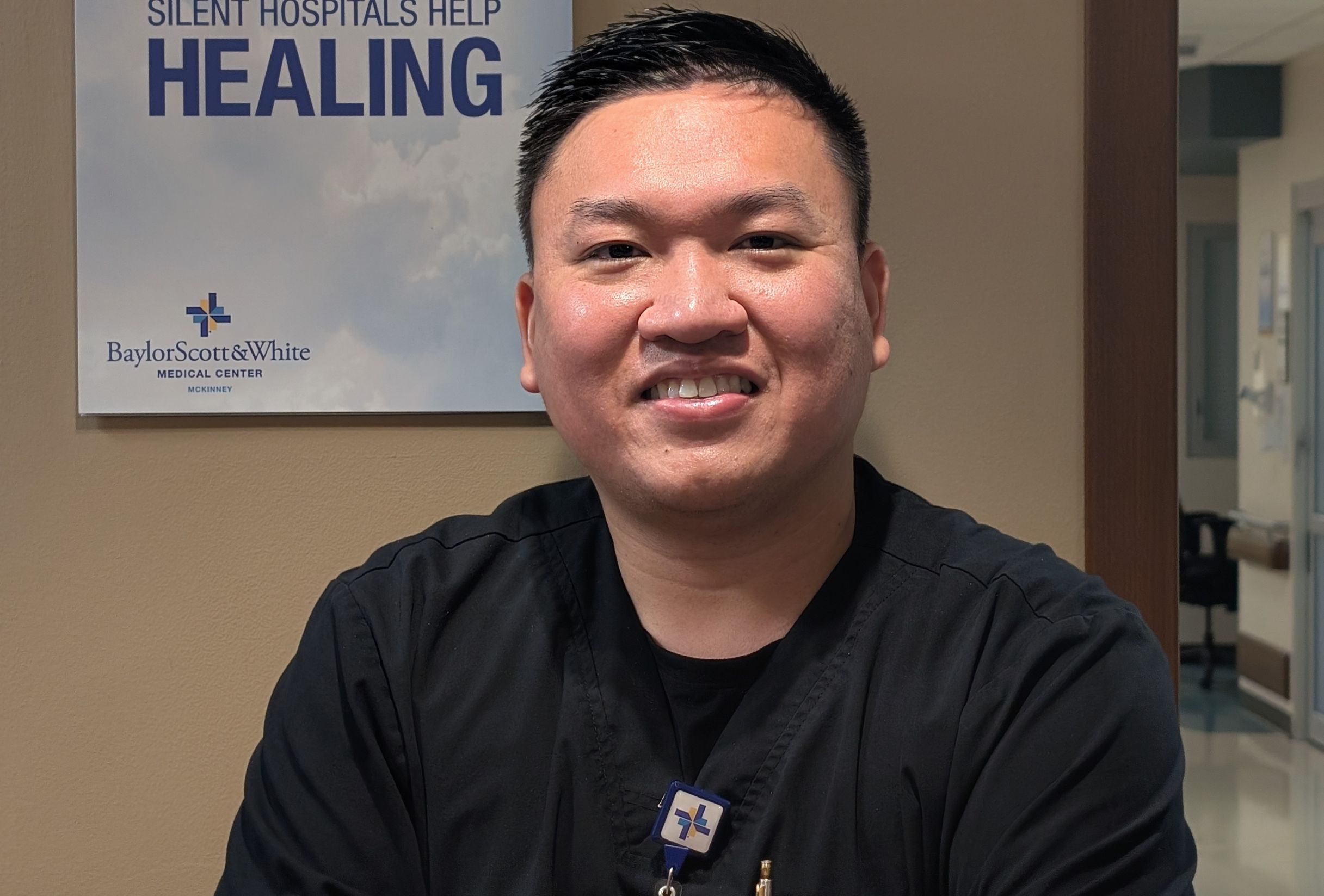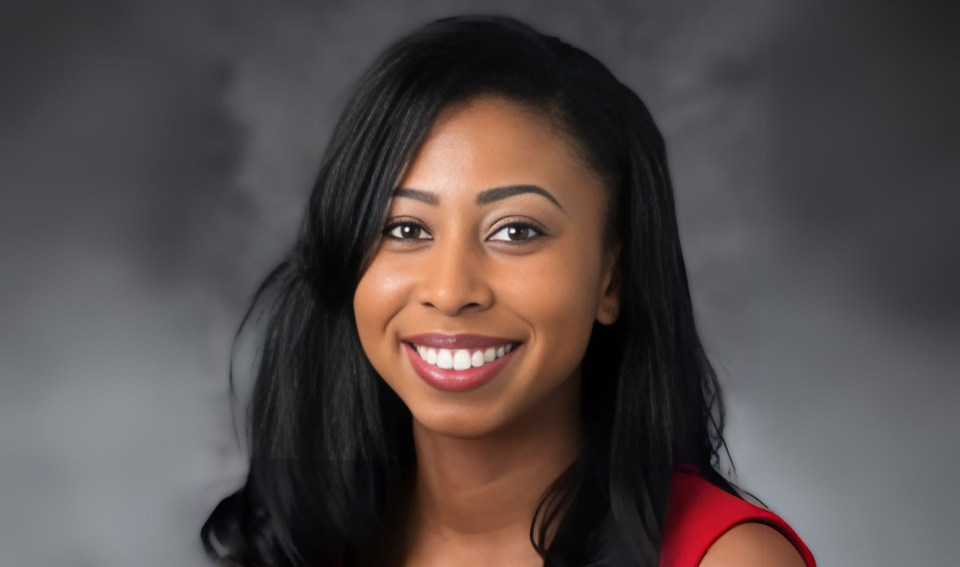Minh Nguyen, RN, celebrates culture through cuisine

27 May 2025

Belonging

18-Feb-2025

As Bre’Layshia Alexander, physician liaison at Baylor Scott & White Medical Center – Temple, sat at the table of various professional organizations and community groups, she became acutely aware that her personal communities were underrepresented—if represented at all.
“As a Black woman, and the youngest, I really didn’t see anybody who looked like me. I had to remind myself that I still deserved to be there, and I had to be very intentional to make sure I made it easier and better for the next person coming behind. So I made it a point to put myself in situations where maybe there weren’t a lot of people who looked like me. I wanted to show the next generation that, even though you might not have full access or all the resources, you can still be in those rooms where maybe you don’t feel like you deserve to be,” Bre’Layshia said.
Empowering the next generation
Bre’Layshia is the board chair of the Temple Education Foundation; vice chair of the Wildcat Mentor Board; an ambassador of the Temple Chamber of Commerce; on the Board of Trustees for Greater Zion Temple Church of God in Christ; the District 6 representative of the Southwest National Athletic Trainers Association’s Career Advancement Committee; vice president of the Central Texas Athletic Trainers Society; and a member of the Un-Included Club Executive Board.
Un-Included is a nonprofit that serves children in underserved and marginalized communities, helping them become unincluded from anything that makes them unwell—notably obesity and issues with literacy—while also empowering them and building leadership skills.
One key Un-Included Club initiative is teaching children to grow microgreens, which they sell in town. They also learn to incorporate them into their diet via smoothies, salads and more.
“Honestly, most kids in poverty aren’t getting proper nutrition,” Bre’Layshia said. “We’re teaching them how to be better stewards of their health. Gardening used to be a foundational piece of Black America, especially after slavery. You did have to learn how to grow your own food, and we kind of lost that. We not only teach these children how to grow food, but they’re now teaching other people from different backgrounds how to grow their food.”
Bre’Layshia’s work with the Un-Included Club is emblematic of her overarching commitment to showing community members that they deserve to break negative intergenerational patterns and seize opportunities to thrive personally and professionally.
“If you’re not exposed to something more, you’re going to be OK with your current reality. That’s how poverty becomes intergenerational. What I see my parents do, that must be the right/only way to do things,” she said.
Confronting echoes of her childhood
During Bre’Layshia’s elementary school years, her family moved from the tiny town of Lott to Temple. Upon entering fifth grade, her teacher suggested placing Bre’Layshia in advanced classes instead of mainstream ones. She also participated in choir, band, theater and athletic training.
“Suddenly, I wasn’t in classes with any of my friends who looked like me, and I didn’t really understand that concept until I got to middle school,” Bre’Layshia said. “I definitely dealt in middle school with an identity crisis. I didn’t really fit in with any group.”
She felt different again when she was deciding on a career and when, years later, she was added to the Texas State Athletic Trainer’s Association Board, where she was the only Black person.
“It’s kind of hard to picture yourself in a career where you don’t see anyone who looks like you,” she said. “I remember sitting at the table, and some of those feelings from middle school and high school crept back in. So when I’m in these spaces, I want not only representation but also people to have a voice at the table. I’m starting to see improvements, but it’s slow.”
While Bre’Layshia shies away from recognition, she’s often approached by peers who remark on the number of community leadership roles she holds.
“They’ll say, ‘I didn’t know we could do that,’” Bre’Layshia said. “If you don’t know, you don’t understand that you, too, can contribute.”

Location Category Allied Health Posted Date 02/07/2025
Maintains accurate documentation when practicing forms of healthcare within the scope of the athletic training license. Helps market the sports medicine program, including the provision of information...
Location Category Shared Services Posted Date 07/21/2025
The Community Health Worker 2 provides cultural mediation between health care, social services, and the community. Activities include outreach, patient navigation, follow-up, community health educatio...
Location Category Physicians Posted Date 06/16/2025
Are you looking for a fulfilling role where you can examine, diagnose, and treat diverse patient conditions? Join a supportive clinical team dedicated to promoting health and wellness, while enjoying benefits like debt-free tuition assistance and immediate time off. Your expertise can make a real impact!
Location Category Shared Services Posted Date 07/24/2025
Learns to use tools and services like outreach, patient navigation, and community health education. Assists with needs assessments and the development of patient plans. Conducts culturally appropriate...
Location Category Shared Services Posted Date 07/15/2025
Learns to use tools and services like outreach, patient navigation, and community health education. Assists with needs assessments and the development of patient plans. Conducts culturally appropriate...
Location Category Shared Services Posted Date 07/14/2025
Assists clients in accessing services and increasing health knowledge and self-sustainment. Learns to use tools and services like outreach, patient navigation, and community health education. Conducts...